Capitalism: Good or Bad? (Part 1 of a Series)
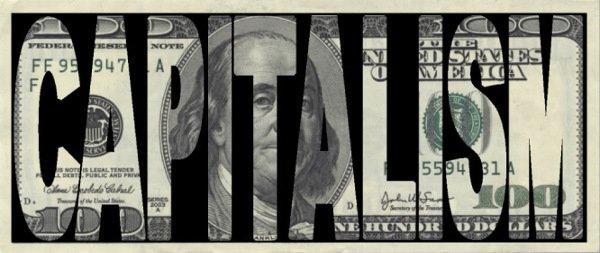
Those who praise “capitalism,” and those who condemn “capitalism,” are rarely talking about the same thing. As such, listening to such arguments can start to sound like this:
“If you have a mosquito problem at your place, you need a bat.”
“That’s stupid! There’s no way you could hit a mosquito with a bat!”
When people are arguing without being clear about the meanings of the words they are using, the conversation often turns into a pointless mess. And when people have different opinions about what some word means, things often devolves into an argument about semantics, and they never get around to actually debating ideas and concepts.
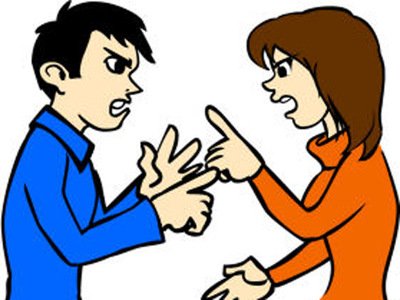
So I will include a general description of what pro-“capitalism” and anti-“capitalism” people mean when they use the term, but then skip to the underlying principles that matter.
“Capitalism” in the good sense (in the sense I learned it) describes human interaction—specifically “economic” interaction, where people trade goods and services with each other—that is free from “government” interference. In that usage, the term is synonymous with “the free market,” which is just a description of people interacting on a voluntary basis. Using that definition, pure “capitalism” also means that “government” owns nothing, and that only private individuals can own anything.
In fact, since every “government” forcibly interferes with trade to one degree or another, via “taxation” and “regulation,” then pure “capitalism” would pretty much require the complete absence of a ruling class. Also, if we are using this definition of “capitalism,” then the term “anarcho-capitalism” is actually redundant, since it literally means “a society without a ruling class … in which trade happens without the interference of a ruling class.”
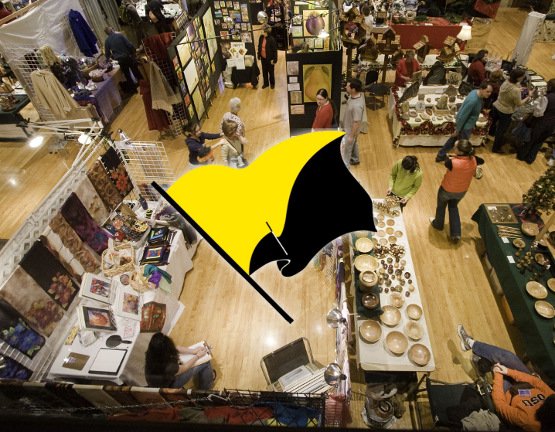
When anti-“capitalists” describe what they think the term means, it can sometimes be vague and nonspecific, and more emotional than intellectual. They often mention wealth being in the hands of a few people, with giant monopolies owned and run by the “super-rich,” who do little or no work but reap massive profits while the “workers” are “exploited.” This is sometimes described as “wage slavery,” based on the argument that for many people the only choices are working for an employer or being homeless and starving, making the arrangement involuntary, unjust, unfair and illegitimate.
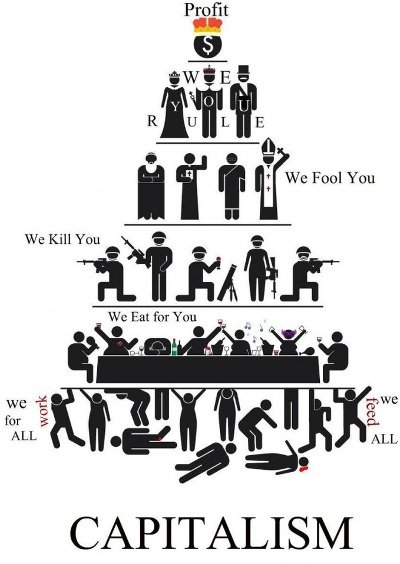
Obviously these two definitions are drastically different, in both generals and specifics.
The first obvious conflict between these two views of what “capitalism” means is that the intolerable situation described by “anti-capitalists,” to the extent it does exist, exists entirely because of “government” power (even if that power is used on behalf of, and at the behest of, huge corporations). The reason people cannot simply wander off to some piece of land that is unoccupied and unused, and homestead a house, a farm, a community, and so on, is because long ago “government” claimed to own massive amounts of land based on nothing but fiat decree. ("Hmmm, this continent looks nice. We declare it to be ours.")
Now anyone attempting to go live off the land—whether on “government” land or on land that “government” claimed ownership of and then gave or sold it to someone else—will be considered a trespasser, and will be forcibly evicted by armed agents of the state. And even if someone manages to convince the state that he owns a piece of land, various levels of “government” will then demand rent (in the form of “property taxes”) from anyone residing within their political territory, and will forcibly evict any who do not pay tribute to “government.” This essentially means that "government" still owns all the land, because they said so.
Obviously none of this fits within the definition of “capitalism” that means a system of trade without “government” interference. What “anti-capitalists” call “capitalism,” “pro-capitalists” call “state capitalism” (which is a bit of an oxymoron) or “corporate fascism” (with fascism meaning a mingling of state and industry). Anti-“capitalists” condemn the current situation in the United States as an example of how bad “capitalism” is, while people who believe in the good kind of “capitalism” (economic trade without interference from a ruling class) argue that the current situation is not at all a free market, and has little or nothing in common with true capitalism, since there are countless ways in which the state interferes with and controls the economy, by way of regulation, taxation, enforced monopolies, fraudulent fiat currency, bogus banking practices, and so on.
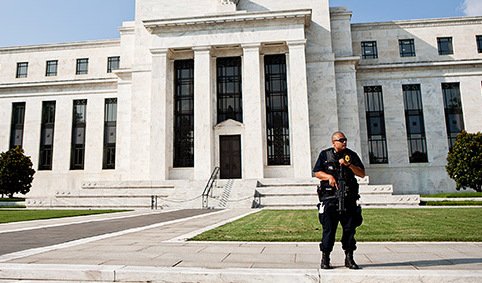
So for the most part, pro- and anti-“capitalism” folk argue past each other, because they’re not talking about the same thing. People will never agree on whether capitalism is good or bad if they can’t even agree on what the term describes. However, if we dig below the semantics, there are some important fundamental concepts. Among both pro- and anti-“capitalism” people, most seem to agree that the opposite of capitalism is communism. (There is, of course, also some argument over just what that term means, too.)
In the following articles in this series I will address several basic disagreements between “capitalists” and “communists,” including:
1 - Collective vs. private ownership, as applied to land, resources, products, etc.
2 - Whether money is, in and of itself, good or bad.
3 - Whether hierarchy and financial “inequality” are inherently bad.
4 - And finally, whether communists actually believe what they say they believe.
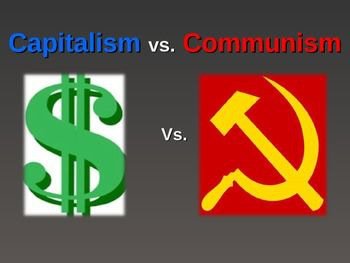
Capitalism does not exist. It is just a word, consider we used to have Democracy this was where citizens were elected to Congress met in debate and crated laws for society to prosper within.
Today we no longer have democracy, we have professional politicians who know only what their handlers allow them to know and who must serve those who paid their campaign contributions.
Thus the modern democratic process has very little to recommend it today. Thus these professional political vermin will do anything, be anything or say anything to get reelected. These are just the public faces of the two contractors who are making money; the Repubidiots and the Demotards . . .
Over time things evolve and communism or capitalism is just a reflection of the ideology that humans believe in. As people perceptions alter so does the reality of capitalism. Any successful profiteer or capitalist from 100 years ago would today quickly find themselves violating some modern law that just did not exist 100 years ago.
Thus as new market makers and entrepreneurs appear people perceptions of the way people make money alters to reflect those practices. Over time humanity evolves, communism evolves, capitalism evolves to reflect human belief of what is involved in making profit.
Not sure I am correct ? consider the premise of capitalism is about government giving business the freedom to make money. Now government duty is to give society the framework to prosper, yet they allowed all those practices which led to The Recession of 2007-2009. Officially that Recession ended in 2009, thus we were ushered into The Great Depression from 2009 till forever.
Today businesses do not manage to make money the way they did before Y2K today the internet rules public information to the masses. So with the internet not even existing prior to 1990 how could capitalism be familiar to people from the 1950's or before ?
Thus the term democracy or socialism or capitalism are just words used to fuel peoples emotions. Today people fear communism but reality says any politician leader of true communism decades ago would not even recognize what communism has become.
The same would apply to the old school Captains of Industry who created many of the previous Fortune 500 companies. Thus these words are dictionary terms at best and have no basis in this crazy new age Y2k modern world . . .
Did you bother reading the article before responding? It doesn't seem like it.
Hang on; what do you mean? " Did I read the article " . . . That is being a little excessive ! ! ! Are you serious, you want people to like READ the WHOLE article , geez : )
sorry ; (just kidding ) ; )
Language is used to describe concepts both real and imaginary. Human action is objectively real. Value is subjective, but real. "The State" is imaginary, just a false god created to justify the real coercive actions of individual humans who call themselves "government." The difference between voluntary and coercive interaction is also real.
Uh, no. The premise of capitalism is the free and voluntary trading of goods and services between individuals. A government literally makes that impossible, as governments survive on interfering with voluntary trade between people.
I love that you point out the redundancy in the term anarcho capitalism. Capitalism has been labeled a "system" by marxists, to have something to react to opposite communism. Anarchism is just the simple thought of lovering the guns and let happen what happens when nobody has a barrel to their head. If "capitalism" can happen it will happen under such circumstances as with any other thing that can happen in the absence of violent force. In all it is a collectivist notion that you should have anything to say over other peoples money, life and time
It's interesting, I was born in the Soviet Union and the rhetoric during my childhood was that capitalism was "bad". Then I moved to the United States and little by little learned the "good" definition for capitalism. After a degree withan economics concentration, I began truly understanding it and the old Soviet propaganda is no longer a part of my psyche. That is the power of Truth.
Enjoyed the read, looking forward to your next 4 posts.
capitalism is trade while having private property.....anti-capitalists don't explain it badly, we just see that in capitalism you can not have "free trade" while the rich make a profit off the labor of the poor. Market socialism is the closest thing to real "anarchist capitalism", it has free trade and the workers get everything they produce.
How can a central agency enforcing arbitrary rules on the marketplace possibly resemble anarchy?
you mean people not being able to take the labor of another worker requires a central authority?......how does having private property that allows you to control all others on it not an authority?
Socialism = central authority. If there is no private property, it necessarily follows that there has to be some method by which property use is designated that does not rely on private property. Any group that declares that a person can or cannot use a particular piece of property is thus a central authority; if individuals cannot use property without the consultation of this group, then it is, by definition, a central authority.
How can I control all others on my property if they're not on my property? If people aren't on my property, I can't do dick about anything. There are such things as legitimate authority (i.e. I am the sole authority over my body, as you are of yours). First appropriation and first use are logically consistent methods for determining initial ownership, and if you have a problem with voluntary consensual exchange, perhaps you need to re-examine your moral principles and see if there's any contradictions or conflicts.
personal property is not private property you retard
Socialism is social ownership of the means of production. I will not read beyond that first sentence. The first anarchists (Classical anarchists) were socialists...... how dare you call yourself an anarchist when you don't even understand the origins.
Good for them? What bearing does that have on the conversation?
More to the point, how can the means of production be commonly owned? Your body is a means of production. Are you really trying to claim that your body is commonly owned by the community?
Personal property is private property. If you exercise exclusive use and control over a given thing, you have privatized it. Thanks for the retard comment following your distinction without a difference.
Capitalism is what works
What is your definition of capitalism? Did you read Larken's post? It is a far more nuanced topic than many people realise.
The version of capitalism that we currently have does not work - it has been intentionally designed to fail. There are economic capitalism models that work for everyone, but we don't use them - the model I am referring to is a model of good capitalism.
I think that I need to write a post outlining the differences between them. There are lot of myths surrounding capitalism, what is means etc that need to be dispelled.
capitalism delivers the goods!
Why does it have to be good or bad? The trading of goods and services for fair compensation should be the cornerstone of all interpersonal relations. The problem is that somehow human nature causes one party to try to achieve an advantage over the other. We as a species teach this to our children. How can capitalism or any social or economic concept work correctly in this environment.
The only "fair compensation" is whatever two people agree on. Beyond that, "fair" is meaningless, and is often used as an excuse for state violence. Unless people commit fraud, in a voluntary market even the most selfish, greedy businessman has to benefit his CUSTOMERS in order to benefit himself. See that computer in front of you? YOU have it, not because all those involved give a crap about you, but because they wanted to enrich THEMSELVES. You benefited from their "greed."
The baker doesn't make bread for his customers out of the goodness of his heart, y'know.
Damn straight! Baking for a living is a pain in the arse - getting up in the wee hours to have fresh product for customers at the crack of dawn every day...
Well, before the fall of the Berlin wall , capitalism still had Some Ethics , but after it went from semi Ethical to Savage Capitalism
Because savage capitalism choose to make what they hated in Communism, like Kiwis (Quantitative easing), like vigilance and pursuit increase and so on
Oh my gosh, yes. Resteeming this for sure. I'm really looking forward to this discussion, Larken. Thank you for making reasoned claims based on how we think about and use language.